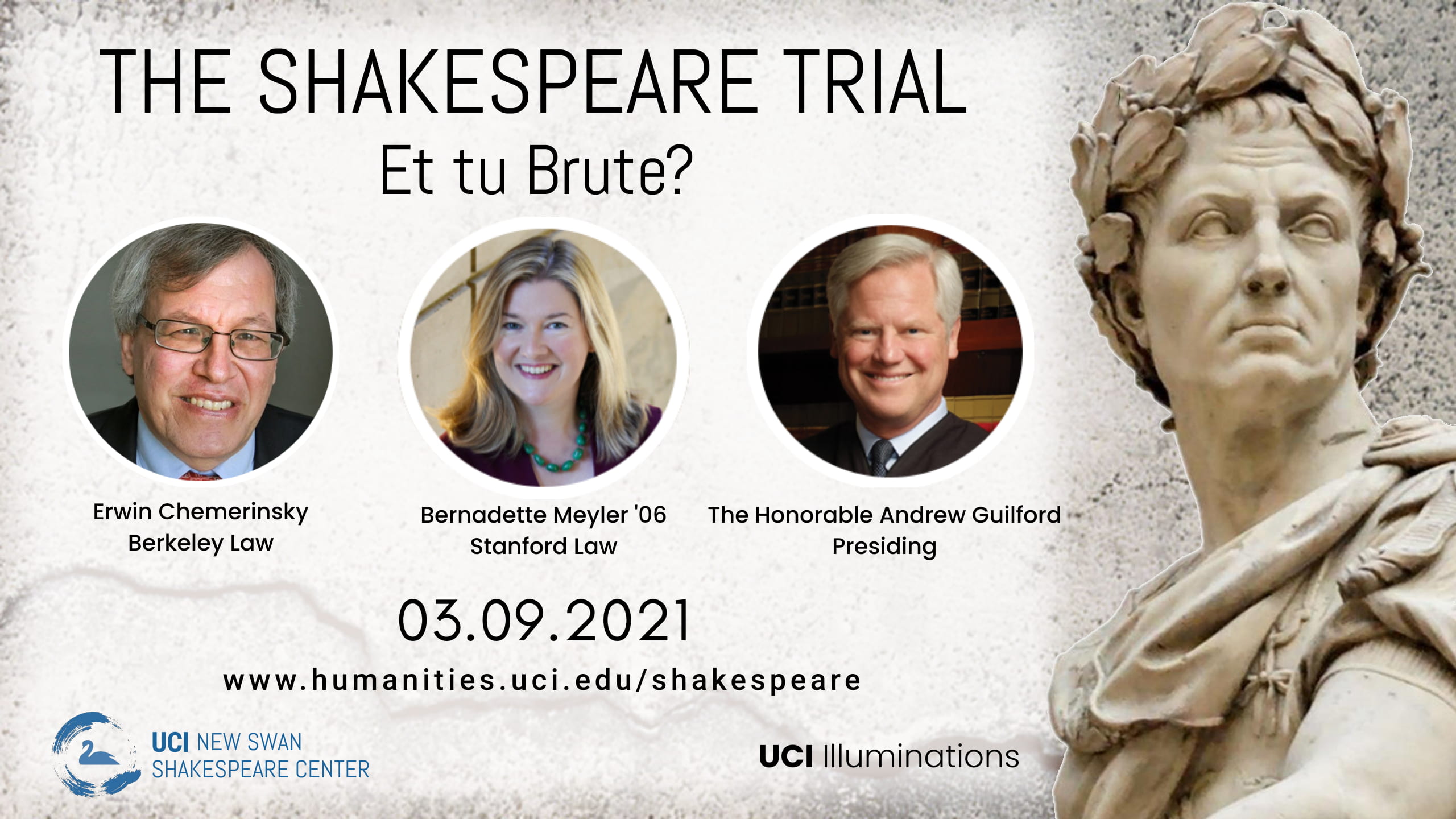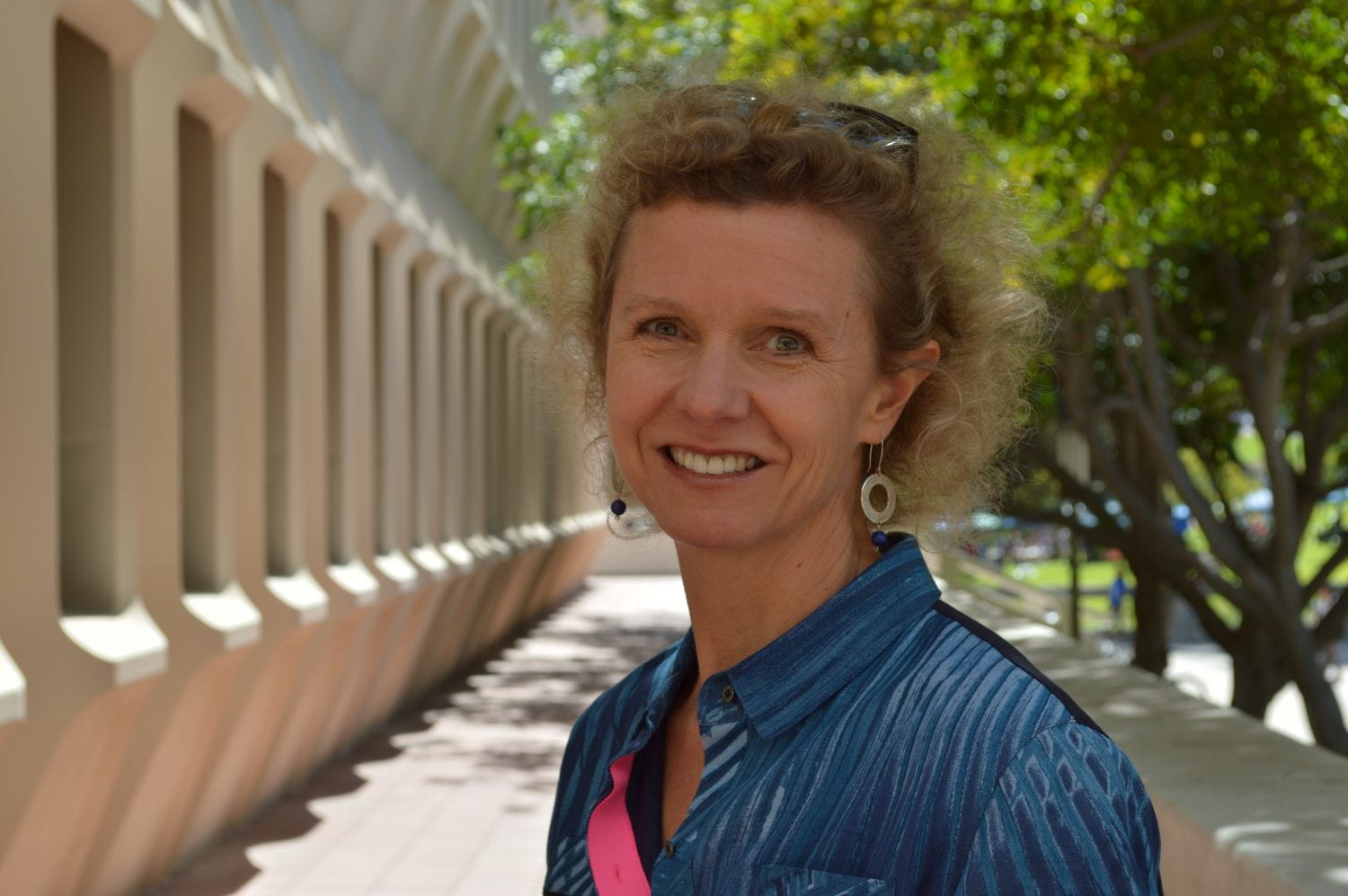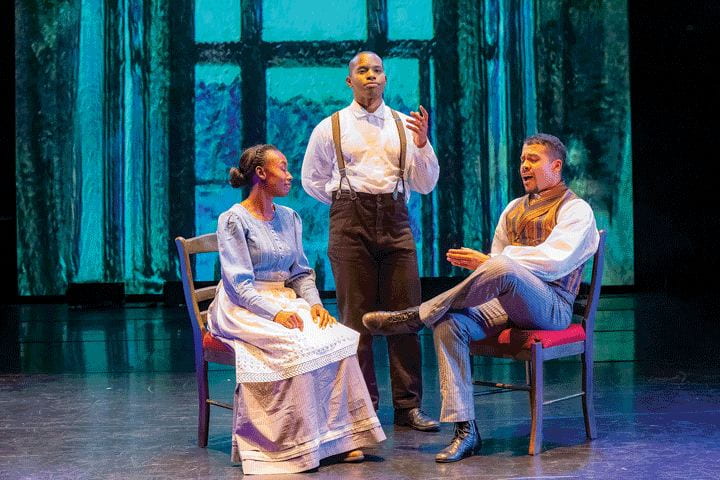UC Shakespeare Trial - ‘Julius Caesar'
Is Brutus guilty of high crimes?

Can a play exploring politics, power struggles and betrayal written 422 years ago and set in ancient Rome still make a contemporary statement about human nature, conspiracy and democracy?
If the work is William Shakespeare’s “Julius Caesar,” the answer is yes.
“In the last weeks, months and years, we have been embroiled in public conversations about the nature of our government, and ‘Julius Caesar’ addresses matters of state,” says Julia Lupton, UCI professor of English. “The citizens of Rome must decide if they want to join Brutus to preserve the Roman Republic or side with Mark Antony and submit to a single ruler, Caesar. Was the act performed by Brutus and his fellow senators murder, or was it justifiable homicide? Should Brutus be acquitted, or should he be convicted for his deed? The history, values and way of life of the Roman people are at stake. It’s momentous, dramatic and relevant.”
Lupton and Eli Simon, UCI Chancellor’s Professor of drama and artistic director of the campus’s New Swan Shakespeare Festival, have collaborated to produce an interactive theater event, “UC Shakespeare Trial,” in which Brutus has been accused of murder and treason for his role as a leading member of the group of conspirators who assassinated Caesar. In this Zoom legal drama, Erwin Chemerinsky, dean of UC Berkeley’s School of Law, will present the case for the prosecution; Stanford law professor Bernadette Meyler, who earned a Ph.D. in English at UCI in 2006, will mount the defense; and former U.S. District Judge Andrew Guilford will preside. The audience will serve as jurors and determine Brutus’ fate: guilty or not guilty.
Actors from the New Swan Shakespeare Festival, directed by Beth Lopes, a UCI M.F.A. alum, will perform scenes from the play featuring passages that best serve the prosecution and defense arguments. “At the heart of this play are two mesmerizing monologues by Brutus and Mark Antony. In Shakespeare, they take place outside, in the Forum, in the presence of the body of Julius Caesar,” Simon says. “Our rendition will have more of an intimate courtroom feel, and as these speeches are delivered straight into the camera, they are personal and compelling on Zoom.”
Audience members will be able to log into the chat function to discuss and debate the merits of the proceedings, creating what Simon describes as “a shared space of dialogue, a new Roman Forum. We think it will be fun, exciting and meaningful.” Following the lawyers’ presentations, the audience will vote on the verdict.
While Lupton and Simon – co-directors of the New Swan Shakespeare Center – are both eager for the chance to resume in-person shows, they have developed an appreciation for the “liberation and inclusion” of the virtual setting. Simon calls the online platform “a powerful new tool for performance and education. It’s definitely going to allow us to continue to reach new audiences and engage more players in public conversations. The interactive polling brings something new, giving the audience a voice in the outcome.”
Adds Lupton: “This event is an opportunity to witness two distinguished lawyers argue an important case and delve into the contemporary relevance of Shakespeare. Last but not least, the audience can let their voices be heard as members of the jury.”
Hosted by Lupton and Simon, “UC Shakespeare Trial” is free and open to the public. It will take place from 5 to 7 p.m. PST on Tuesday, March 9.
Registration is required at
https://www.eventbrite.com/e/uc-shakespeare-trial-et-tu-brute-tickets-136710335293.


